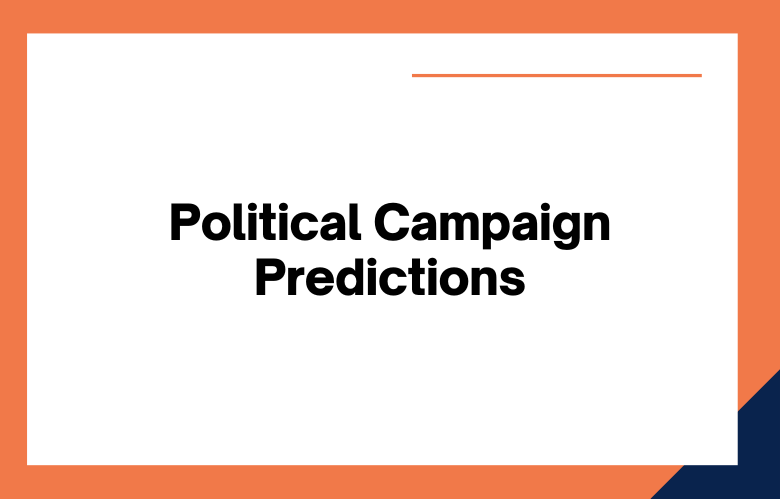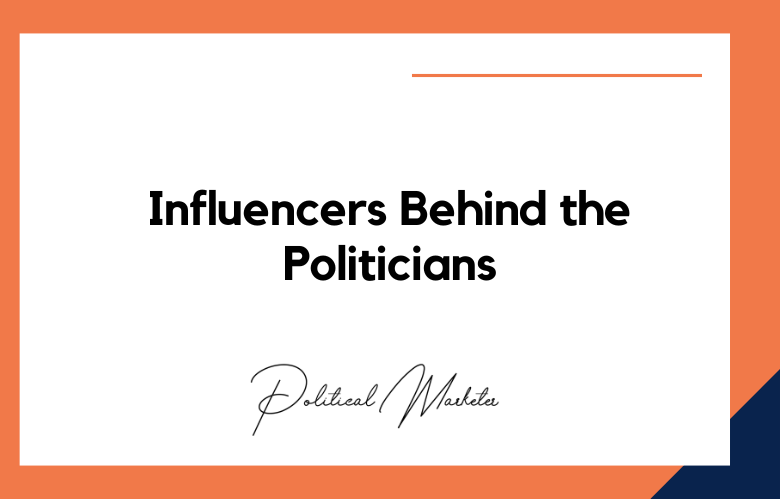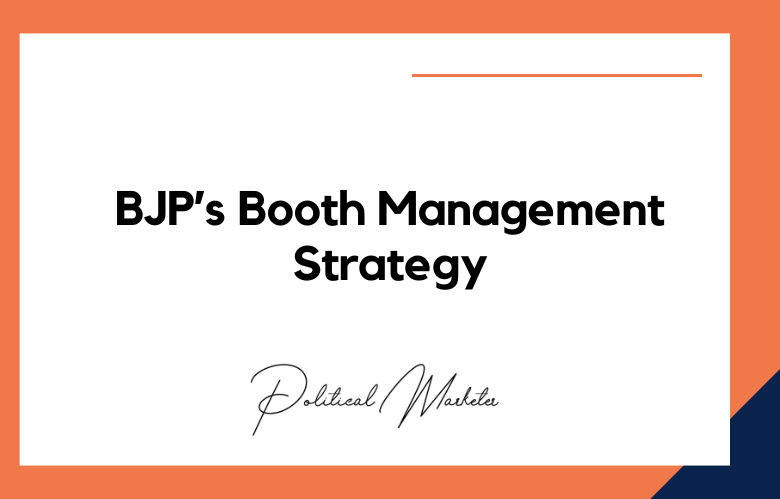Political campaigns are complex and difficult to predict. They involve various factors, including campaign strategies, political affiliations, and public opinion. However, with the advent of large language models, political campaign predictions have become more accessible.
Language models like OpenAI’s GPT-3 and Google’s BERT can process and analyze large amounts of data to produce accurate predictions. We will explore the impact of large language models on political campaign predictions.
What are Large Language Models?
Large language models are artificial intelligence models programmed with vast amounts of data related to natural language. They can learn and generate human-like text.
For example, GPT-3 has been trained on a vast text dataset, enabling it to understand and generate language to accomplish tasks like translation, writing, and coding.
These models differ from traditional machine learning algorithms as they can learn formats through context and not just rules.
Applications of Large Language Models in Political Campaign Predictions.
Large language models are changing the landscape of political campaign predictions. With the ability of large language models to understand natural language, they can provide more human-like approaches when predicting election outcomes.
Political campaigns rely on social media campaigns, public speeches, and debates. Consequently, large language models, through NLP, can process the speeches made by politicians and generate a response that can predict their political agendas.
The Impact of Large Language Models on Political Campaigns.
Using large language models in political campaign predictions alters how political campaigns approach public relations strategies.
With the predictions, campaigns become more aggressive since they already know who to target and their opponents’ plans.
The predictive models also enable campaigns to adjust strategies to understand better what influences public opinion.
The Future of Political Campaign Predictions
Large language models can transform how political campaigns are run. In the future, large language models are expected to play an increasingly vital role in predicting the outcomes of political races.
This will enhance a candidate’s chance of winning by creating a more targeted campaign, making the most of campaign resources, and achieving greater public appeal. However, there is also a flip side.
The models could learn unintentional biases from the data they fed, leading to unfair advantages for specific candidates. Therefore, the ethical use of such models is crucial in ensuring that election campaigns remain free and fair.
How Large Language Models are Changing Political Campaign Predictions
With the rise of Artificial Intelligence (AI), prediction models based on machine learning have become an integral part of various industries.
One such application of AI is in predicting the outcomes of political campaigns. In recent years, machine learning-based models have reliably predicted the results of several political races worldwide.
However, with GPT-3, a large language model developed by OpenAI, political campaign prediction models are taking a fascinating turn by incorporating natural language processing (NLP) capabilities.
We will examine how large language models are changing political campaign predictions.
The Rise of Large Language Models in Political Campaign Predictions
Political campaign predictions have become a vital part of our democracy. A few years ago, teams of experts were hired to predict the results of the elections, relying on their experience and intuition.
However, with the advancements in artificial intelligence (AI) technologies, large language models have become famous for deciphering and forecasting election results.
Language models, such as the famous GPT-3, are artificial intelligence tools designed to process and understand human language.
These models can process vast amounts of data and generate responses almost as if they were humans. Today, the impact of these tools on political campaign predictions cannot be overstated.
Using large language models in political campaign predictions has allowed campaigns to understand voter behaviors, demographics, and issues affecting their constituency better.
By analyzing social media data, political speeches, and news articles, these models have helped to identify emerging issues and constituency opinions and ultimately predict the election results.
Improved Accuracy:
Large language models can potentially improve the accuracy of political campaign predictions.
To generate predictions, these models can process large amounts of data, including speeches, social media posts, and news articles.
This means that campaign teams can use language models to analyze public opinion and predict how people may vote.
Using language models, campaign teams can make better decisions, target voters more effectively, and allocate resources more efficiently.
Increased Efficiency:
Language models are also helpful in making campaign processes more efficient. Traditionally, political campaigns require extensive research and manual analysis to predict voter behavior.
However, with large language models, campaign teams can process data faster, giving them more time to focus on other critical aspects of the campaign.
This will help to optimize the campaign’s budget and strategy, making campaigns more effective.
Personalization:
Large language models also have the potential to personalize political campaigns. By understanding voters’ personal preferences, opinions, and behaviors, candidates can tailor their messages to meet the needs of each voter.
Language models can analyze social media profiles and other online data to create personalized messages that appeal to a voter’s personal beliefs.
This can help candidates create stronger connections with voters, increasing the likelihood of their voting to support the candidate.
Ethical Considerations:
While there are many benefits to using language models for political campaign predictions, ethical considerations must also be evaluated.
Using data-intensive technologies like large language models raises privacy and data security concerns.
Political campaigns must ensure that they’re only using data ethically and transparently. Campaigns need to safeguard personal information and use it only for political campaigns.
The Future:
The use of large language models is still in its infancy in the political world. As technology evolves, these models are expected to become even more effective in predicting voter behavior and optimizing political campaigns.
In the coming years, we can expect campaigns to rely increasingly on data and technology to make informed decisions and predictions.
Conclusion:
The use of large language models is a game-changer for political campaigns. The ability to analyze vast amounts of data quickly and accurately creates endless possibilities for campaign teams.
However, ethical considerations must be taken into account when using these models.
As technology advances, campaigns must ensure they use data and technology ethically to uphold trust and respect for voter privacy.
Overall, large language models will continue to shape the future of political campaign predictions and optimize campaigning processes for the better.
Call: +91 9848321284
Email: [email protected]
Large Language Models’ Impact on Political Campaign Predictions: FAQs
What Are Large Language Models In The Context Of Political Campaigns?
Large Language Models (LLMs) are advanced AI systems trained on massive text datasets to understand, generate, and predict human language. They enable insights into voter sentiment, message framing, and predictive analytics.
How Do LLMs Help Predict Political Campaign Outcomes?
LLMs analyze large-scale data—from news to social media—to detect patterns, predict voter behavior, and model election scenarios based on language trends and real-time public discourse.
Can LLMs Analyze Voter Sentiment Accurately?
Yes. They can process millions of posts, comments, and articles to extract public sentiment, emotional tone, and issue-based polarization.
What Types Of Data Do LLMs Use For Campaign Predictions?
They use news articles, speeches, manifestos, social media posts, surveys, debates, historical election results, and real-time audience feedback.
How Are Political Campaigns Using LLMs Strategically?
Campaigns use LLMs to test messaging, simulate public responses, generate content, forecast turnout, and model the impact of events or scandals.
Do LLMs Replace Traditional Polling Methods?
Not entirely. They supplement polling by providing continuous, real-time sentiment and behavioral data that traditional polls may miss or lag on.
Can LLMs Personalize Voter Messaging?
Yes. LLMs can craft tailored content for different voter personas based on demographic, geographic, and psychographic segmentation.
What Is The Role Of Prompt Engineering In Political LLM Use?
Prompt engineering involves crafting specific questions or inputs to elicit accurate and relevant responses from LLMs during campaign modeling and simulation.
How Do LLMs Address Misinformation During Campaigns?
LLMs can be trained to detect, flag, and counter misinformation by identifying false claims and suspicious sources, as well as coordinate disinformation campaigns.
Are LLMs Biased In Their Political Predictions?
Bias can occur depending on the training data. Therefore, political campaigns must evaluate and fine-tune models for fairness, transparency, and reduced bias.
What Ethical Concerns Are Linked To LLM Use In Politics?
Concerns include data privacy, manipulation of public opinion, lack of transparency, and AI-generated fake content or deepfakes.
How Do LLMs Support Political Debate Analysis?
LLMs can provide real-time analysis of debates by summarizing key points, fact-checking claims, and evaluating candidate tone and public reaction.
Can LLMs Be Used To Optimize Political Advertising?
Yes. They help write ad copy, analyze performance data, suggest adjustments, and personalize messaging based on target audience feedback.
What Is The Predictive Accuracy Of LLMs In Elections?
While imperfect, LLMs improve prediction accuracy when combined with polling, demographic data, and historical voting trends.
How Are Political Consultants Using LLM Tools?
Consultants use LLMs to draft speeches, simulate voter Q&As, prepare for crisis response, and build data-driven campaign narratives.
Do LLMs Play A Role In Voter Turnout Models?
Yes. By analyzing sentiment trends and mobilization language, LLMs can forecast the likelihood of turnout among various segments.
Can LLMs Detect Shifting Public Opinion During A Campaign?
Absolutely. Continuous analysis of online discourse allows LLMs to identify real-time changes in voter mood or issue importance.
How Are LLMs Used In Opposition Research?
LLMs scan opponents’ digital footprints to detect inconsistencies, analyze messaging, and assess how voters perceive their language.
What Platforms Integrate LLMs For Political Use?
Campaign data stacks use platforms like ChatGPT, Claude, Gemini, and custom AI tools built on open-source LLMs like LLaMA or Falcon.
Are LLMs The Future Of Political Forecasting?
They are becoming essential tools in modern campaign strategy, offering speed, scale, and deep insights that traditional methods struggle to match.











